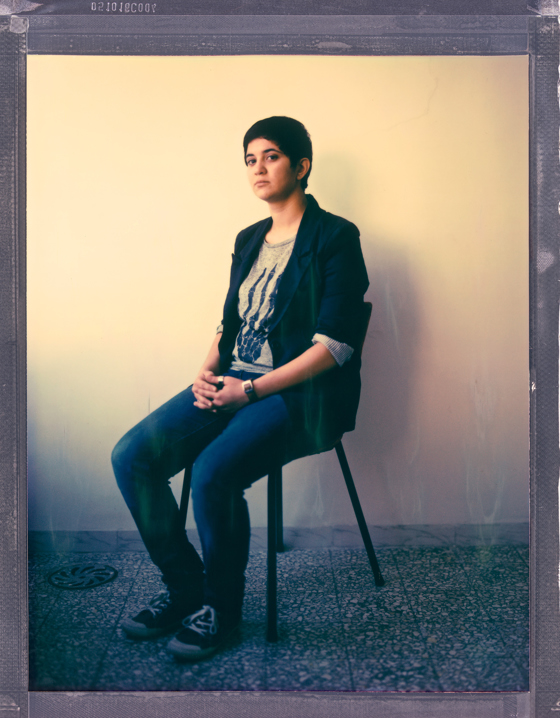Soly / Tunisia
“I always knew that I was different. I was 4 or 5 when I realised I was not like the other kids. I thought it was ‘normal’.
But when I got older, I started to understand that it wasn’t that simple or ‘normal’, so I tried to hide it, simply because I was afraid. Then, I needed someone to talk to, so I decided to come out to my best friend. I kept thinking and thinking of the way I’m going to tell her, so I thought, step by step would be better. First I told her I think I’m bisexual, she didn’t like it, and she kept trying to convince me that it was just a ‘phase’, and that I can be ‘cured’. Then I decided to fully come out to her, I texted her and I just told her that I no longer think that I’m bisexual. She was happy and told me that she knew it was just a phase. But I told her, that I’m fully gay. She didn’t reply, and after few days she texted me to ask me to remove our pictures together from facebook because “she is not honored to have a friend like me“.
That text crashed me, if my best friend the one I trusted the most, loved the most is able to reject me in a second, how about the others? How about my family? Society?
I understood then that being different is not a good thing. People will reject you and hate you because you are not like them and you don’t want to be like them. I felt so lonely so rejected, I couldn’t talk about my ‘identity’ and it felt so wrong. I even tried to commit suicide a few times. I wasn’t able to tell anyone. I kept thinking and thinking what everyone would think of me. I was scared of their reactions. By then, I didn’t know that there are people just like me, maybe struggling as well. One night, my over thinking went too much, and I just decided to end it. I took lots of pills, hoping whatever this was, will end. I didn’t want to be rejected again, or judged one more time. But I didn’t die, I didn’t take enough pills, and I’m thankful for that. After a few years of being unable to trust people again or to talk about who I am. The universe threw some people who did accept me, they didn’t even care if I liked girls they cared about me. And better yet, I met people who are just like me, who suffered who tried to end it, who survived. They are my family and we decided that together, we will help those people like us, who didn’t find yet a new family.
Our journey is risky, and tiring and challenging in this society that rejects us and put us in jail because of who we are, but are eager to change that.”





You deserve a normal life. Keep courageous
You are wanted, you are loved and you are not alone. Stay fearless.